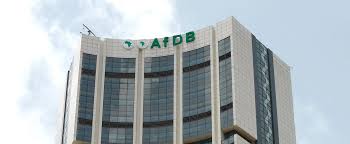The race to lead the African Development Bank (AfDB) enters its final lap this Thursday as five candidates — including one woman — compete to succeed Dr. Akinwumi Adesina, Nigeria’s two-term president of the bank. The election, holding in Abidjan, Ivory Coast, is shaping up to be one of the most competitive in the institution’s history.
Founded in 1964, the AfDB is one of the world’s leading multilateral development institutions. It has 81 member countries, including 54 African nations, and is funded through member contributions, global market loans, repayments, and income from investments. The bank is headquartered in Abidjan, the commercial capital of Ivory Coast.
In 2015, Adesina, a former Nigerian Minister of Agriculture, emerged as president after six intense rounds of voting. Now, as his tenure ends, the selection of a new leader appears equally unpredictable.
The next AfDB president will inherit a complex global economic environment, with increasing geopolitical tensions and funding uncertainties. One major challenge includes a potential $500 million funding cut from the United States, part of broader policy shifts announced under the Trump administration, which could affect projects targeted at low-income African nations.
The Candidates
The five candidates vying for the top job represent diverse regions of Africa:
Amadou Hott (Senegal) – Former Minister of Economy, Planning and Cooperation. He is one of the frontrunners from West Africa.
Sidi Ould Tah (Mauritania) – Former Finance Minister. Also from West Africa, he currently heads the Arab Bank for Economic Development in Africa.
Samuel Munzele Maimbo (Zambia) – An economist and financial expert, he brings Southern African representation to the race.
Bajabulile Swazi Tshabalala (South Africa) – The only female candidate, she served as AfDB’s acting Senior Vice President and is a former banker.
Abbas Mahamat Tolli (Chad) – Former Governor of the Bank of Central African States. His candidacy represents Central Africa, a region that has never led the institution.
Adesina’s Legacy
Outgoing President Adesina, during his farewell speech on Tuesday, highlighted the bank’s achievements under his leadership. He stated that 565 million Africans benefitted from AfDB-funded projects during his ten years in office.
Key initiatives included:
Construction of the Gabal El Asfar wastewater treatment plant in Egypt — Africa’s largest.
The bridge linking Senegal and The Gambia, easing regional transport.
Expansion of Togo’s port in Lomé.
Rural sanitation projects in Lesotho.
Access to electricity programs in Kenya.
Adesina also noted that the AfDB’s capital base increased more than threefold during his tenure, growing from $93 billion in 2015 to $318 billion by 2024.
“We have built a world-class financial institution that will continue to champion Africa’s position in a changing global order,” Adesina said proudly.
Election Rules and Influence
According to AfDB regulations, to emerge as president, a candidate must receive a double majority: a majority of votes from all shareholders and a separate majority from African member countries.
Each member country’s vote is weighted based on its financial contribution. Hence, top African contributors such as Nigeria, South Africa, Egypt, Algeria, and Morocco will play key roles in tipping the scale.
Among non-African stakeholders, the United States and Japan hold significant influence due to their large shareholdings.
If no candidate secures the required majority in the first round, the one with the lowest votes will be eliminated. The process continues in subsequent rounds until one emerges with the majority support.
This system places a premium on strategic alliance-building, and behind-the-scenes negotiations are already intensifying at Hotel Ivoire in Abidjan, where the election will be held.
Continuity and the Five Priorities
All five contenders have pledged to sustain and expand Adesina’s “High 5” agenda which includes:
Light up and power Africa
Feed Africa
Industrialise Africa
Integrate Africa
Improve the quality of life for the people of Africa
Whoever wins will be expected to deepen these efforts, while tackling emerging challenges such as climate change, debt sustainability, youth unemployment, and energy poverty.
As Africa waits for its next “super banker,” the continent’s hopes rest on strong leadership that can consolidate past gains and navigate future storms.
